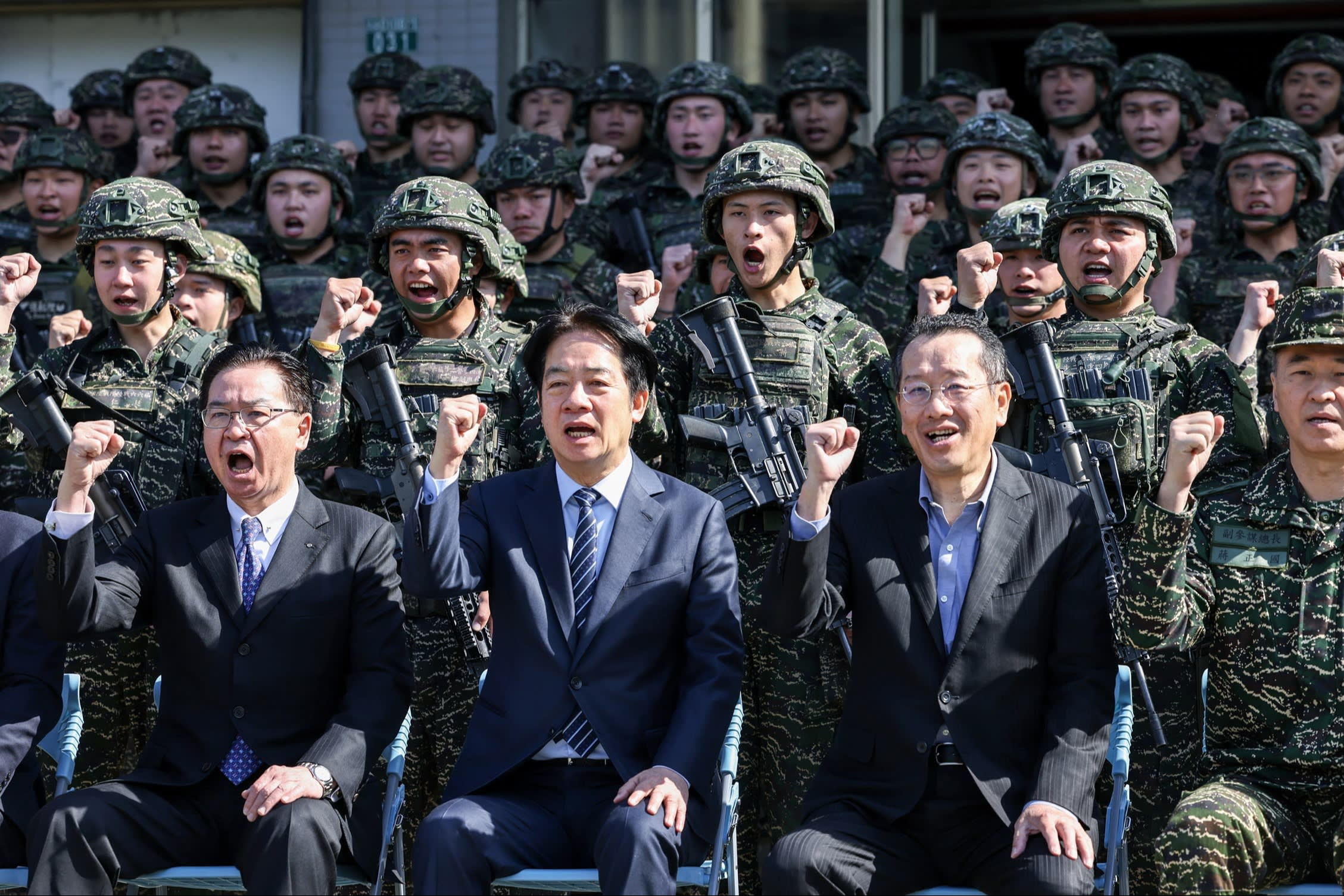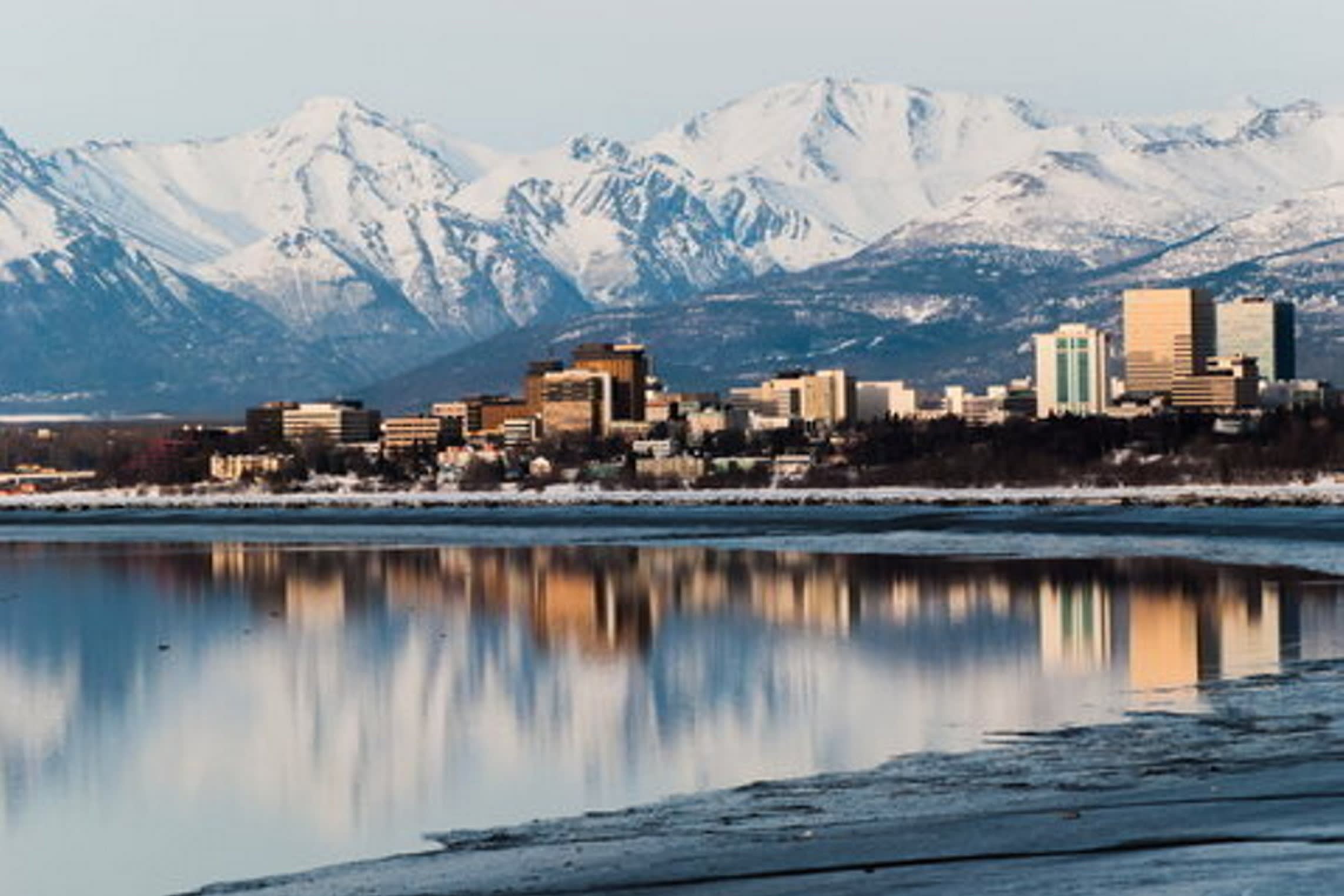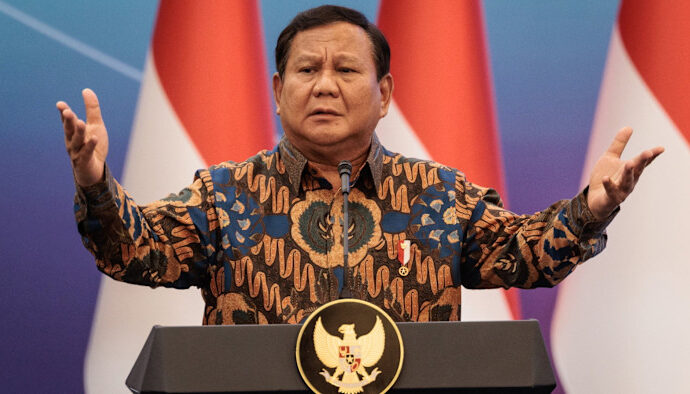Unlock the White House Watch newsletter for free
Your guide to what Trump’s second term means for Washington, business and the world
US and Taiwanese defence officials held secret talks in Alaska last week, days before President Xi Jinping flaunted China’s military might to the world at a parade attended by fellow strongmen.
Jed Royal, the Pentagon’s top Indo-Pacific official, met Hsu Szu-chien, then Taiwan’s deputy national security adviser, in Anchorage, according to several people familiar with the matter.
The talks came months after a Washington meeting between more senior American and Taiwanese officials was cancelled, partly over concerns that it could derail a potential bilateral meeting between President Donald Trump and the Chinese president.
News of the meeting in Alaska comes amid questions about how far Trump is willing to support Taiwan as he seeks a summit with Xi and the two countries hold talks to end their trade war.
“The Trump administration may be trying to thread the needle between assuring Taiwan and keeping the possibility of a trade deal and summit with China alive,” said Amanda Hsiao, China director at Eurasia Group.
But Hsiao noted that China would have protested more had the defence meeting taken place at the ministerial level in the greater Washington area.
Royal is serving in an acting capacity while the Trump administration waits for its nominee, John Noh, to be confirmed by the Senate. Hsu last week was elevated to a more senior role advising Joseph Wu, Taiwan’s national security adviser. He is viewed as the leading contender to become the next Taiwanese ambassador to Washington.

The US delegation for the meeting planned for June was due to be led by Elbridge Colby, the top defence policy official. Wellington Koo, Taiwan’s defence minister, had been expected to lead the Taiwanese delegation.
The Trump administration cancelled the meeting at the last minute, telling Taipei the move was related to its military strikes on Iran. But some US officials had argued that allowing a serving Taiwanese defence minister to visit Washington for the first time could jeopardise a Trump-Xi summit.
“The downgrading of the US-Taiwan defence talks provides further evidence that Trump has likely instructed his cabinet officials not to do anything that would undermine negotiations with China that are aimed at securing a trade deal and a summit with Xi Jinping,” said Bonnie Glaser, a Taiwan expert at the German Marshall Fund.
US and Chinese officials are holding trade negotiations that both sides say could pave the way to a summit in Beijing, possibly in October. The Financial Times previously reported that US officials have been instructed to freeze anti-China measures, such as export controls, to avoid derailing the talks.
One US official said the decision to meet in Alaska was a deliberate attempt to make the talks less high-profile. But he said the composition of the US team was partly due to scheduling constraints on its part.
Trump’s penchant for seeking deals with authoritarian rulers, his erratic trade policy, his apparent personal disregard for Taiwan, and the influence of his isolationist Maga support base have unsettled Taipei.
Heino Klinck, an Asia security expert who served as top defence official for Taiwan in Trump’s first administration, said frequent senior level meetings with Taiwan were critical to the US national interest. “When juxtaposed with the triumvirate of tyranny [China, Russia and North Korea] reviewing a military parade in Tiananmen Square, the justification for such US-Taiwan engagements is clear.”

President Lai Ching-te has been put in a tougher spot than his predecessor Tsai Ing-wen, who oversaw ever closer and more trustful relations with both the first Trump administration and the Biden administration.
But Lai is trying to manage the challenge. Vice-president Bikhim Hsiao and Alexander Yui, Taiwan’s ambassador to the US, have pushed back against doubts about US support in interviews with Maga-affiliated media.
The Taiwanese government last month proposed a record 23 per cent increase in defence spending which would bring it to more than 3.3 per cent of GDP next year. It hopes to convince the US about its determination to pay for its defence. But officials worry that the opposition could use its legislative majority to cut some proposed funding.
Taiwanese officials and analysts attributed the lower-level Alaska meeting to the clash between Taipei’s need hold the meeting in time to submit a special budget for arms purchases to parliament and as Colby finalises a national defence strategy.
Still, observers highlighted concerns over the relationship. “There has been discussion in US policy circles about whether Trump might seek a grand bargain with China,” said Yang Kuang-shun, co-founder of US Taiwan Watch, a non-profit focused on the bilateral relationship.
Yang said Trump’s previous move to delay signing a big sale of F-16 fighter jets to Taiwan until after concluding trade talks with China in 2019 had shown that he might prioritise negotiations with Beijing.
The Pentagon declined to comment on the Alaska meeting. Taipei also declined to comment.


